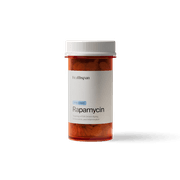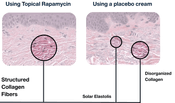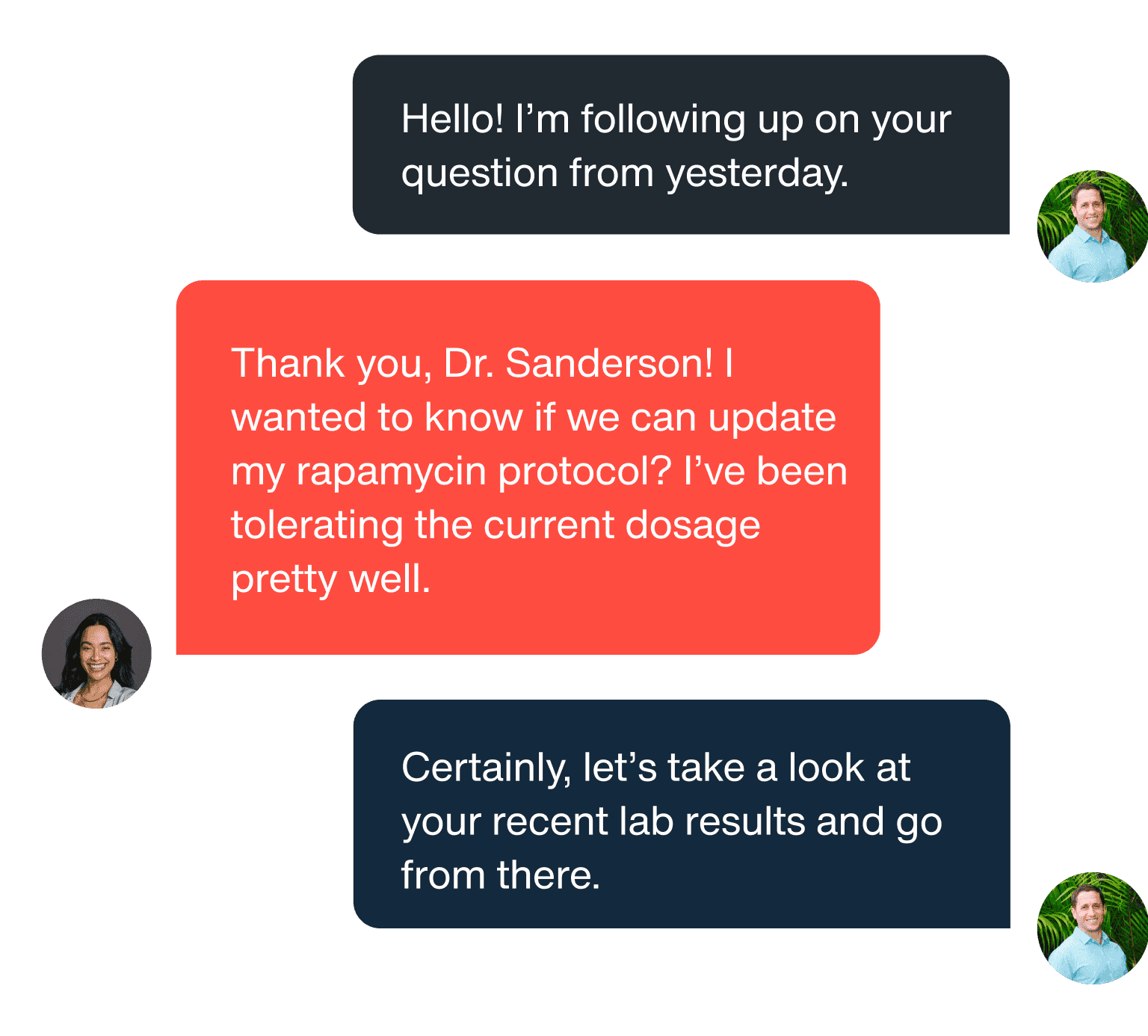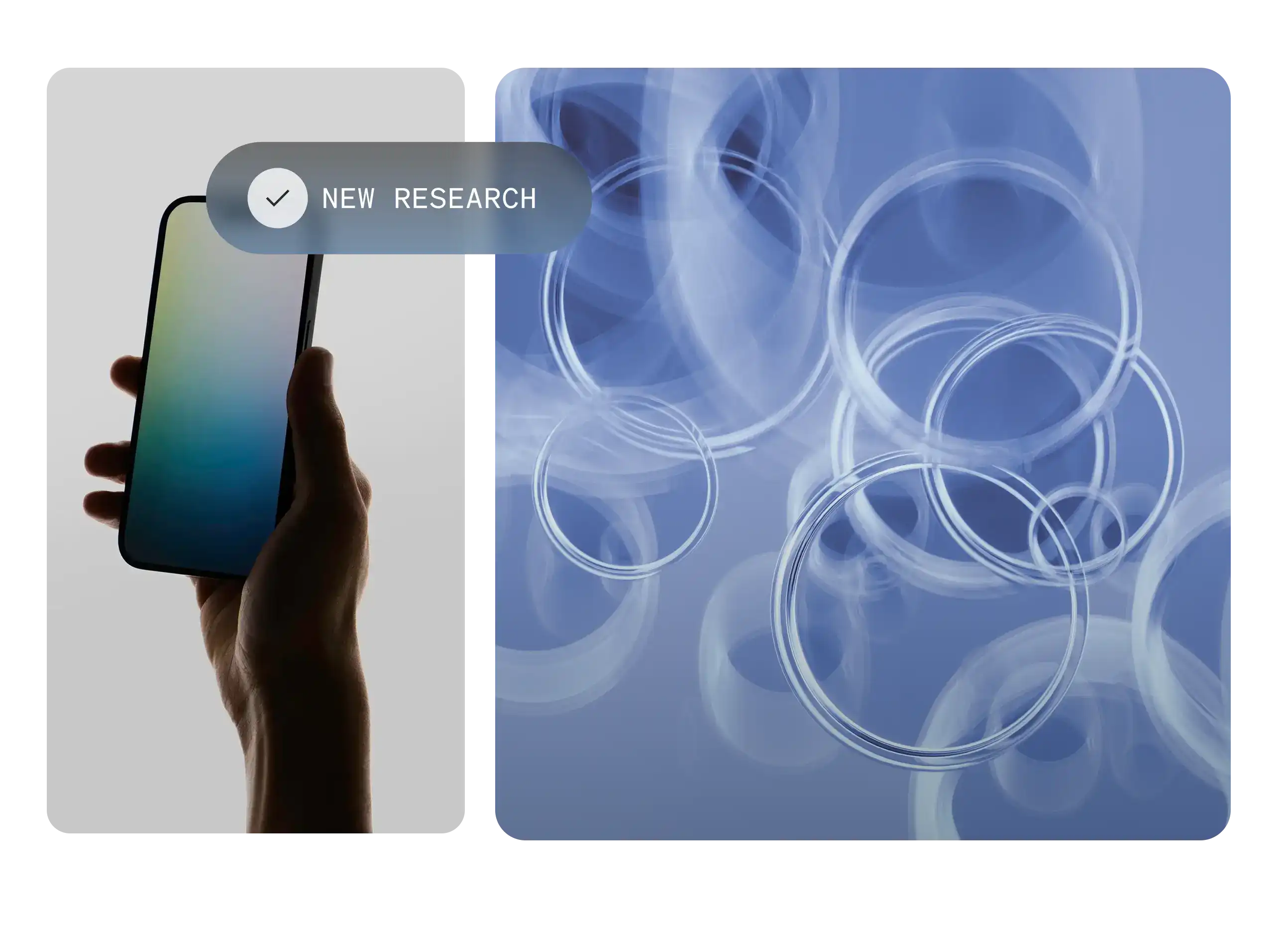Senescence

Rapamycin
The most powerful tool to stop the acceleration of aging caused by mTOR dysfunction and cellular senescence.
Senescence
Senescence
Topical rapamycin, infused with the potent effects of EGCG, is the premier skin longevity treatment scientifically proven to address the root cause of skin aging, resulting in skin that not only looks younger but also feels healthier. It is crafted as a daily moisturizer and is specially formulated to protect and rejuvenate the areas of your skin most vulnerable to environmental damage: your face, hands, and neck.
Starting at $115 /mo
By testing for bioavailability, we're able to deliver medications that are more easily absorbed by your body, leading to improved outcomes and better overall health.
All of our medications are pharmaceutical-grade and dispensed by a licensed pharmacist. We have extensively tested all of the formulations of our medications to offer our patients the highest bioavailable medications.
Our US-based clinicians are here to provide the guidance and support you need to achieve your health and longevity goals, and to address any concerns or questions you may have.
By focusing on skin senescence, topical rapamycin cream addresses skin aging at its molecular level.
As cells age, they can become senescent, losing their ability to divide and function properly. Over time, this leads to a decline in collagen production, which is a key factor in skin elasticity and firmness. Rapamycin, by clearing senescent cells, addresses one of the fundamental causes of skin aging.
Collagen, the most abundant protein in the body, provides structure and strength to our skin. As we age, collagen production slows down, contributing to wrinkles and loss of skin firmness. Rapamycin may help to stimulate collagen production, restoring strength and youthful vitality to the skin.
By boosting collagen production and targeting the removal of senescent cells, rapamycin can help increase the firmness of the skin. This leads to a reduction in sagging and the appearance of wrinkles, offering a more youthful complexion.
Chronic inflammation can speed up the aging process and lead to skin damage. Rapamycin has anti-inflammatory properties that can help reduce inflammation in the skin, thereby potentially slowing the aging process and improving overall skin health.
mTOR pathway
Autophagy
Cellular Senescence and Inflammation
Collagen Production
Skin barrier function and resilience
Skin cell proliferation

As skin ages, senescent cells accumulate, playing a pivotal role in skin health decline. At the heart of these senescent cells lies elevated mTOR activation. When mTOR goes into overdrive, it boosts hypergrowth in these cells, turning them into larger, more active, and more disruptive entities. This amplified activity can recruit healthy cells into a dysfunctional state, escalating the aging process of the skin.
One visible manifestation of this mTOR-driven hyperactivity is in the overexpression of the insulin-like growth factor II gene (IGF-2) in keratinocytes. This results in skin overgrowth, often appearing as wrinkles. In essence, mTOR hyperactivation drives the dysfunction we witness in aging skin.
If mTOR accelerates the aging of cells and tissues, then rapamycin is a potentially potent molecule to decelerate the aging process. Rapamycin binds and inhibits the activity of mTOR—slowing down the progression of senescence and cellular dysfunction in the skin layer.
Senescent cells accumulate over time and lead to a decline in collagen production, an increase in wrinkles, and a decrease in skin elasticity. Rapamycin targets senescent cells to target the root cause of skin aging.
Rapamycin reduces the total amount of pro-inflammatory and dysfunctional senescent cells in the skin layer.
Reduced Skin Inflammation
Firmer Skin
Increased Autophagy of Misfolded Collagen
Improved Skin Elasticity
Reduced Skin Damage
Rapamycin drastically reduces markers of skin senescence.
P16 is a protein that is involved in the regulation of the cell cycle and senescence. P16 is expressed at high levels in the skin and has been shown to play a role in skin aging.
Solar elastosis contributes to the formation of wrinkles and sagging skin. Rapamycin decreases the amount of solar elastosis to increase skin elasticity and reduce skin damage.
Autophagy Removal of Misfolded Collagen
Increased Collagen in Basal Layer
Improved Skin Firmness
Enhanced Skin Elasticity
Reduced Risk of Skin Damage
Rapamycin treatment reduces the occurrence of solar elastosis and dysfunctional collagen.
Solar elastosis is a sign of photoaging caused by sun damage to elastic fibers, leading to wrinkles and decreased skin elasticity. Disorganized collagen fibers impair skin healing and increase the risk of age-related skin conditions.
Topical Rapamycin for Skin
The science
SUPPORT
Healthspan will only recommend treatments with robust clinical data to support its use. Our clinical team is here to help you find the right protocol to meet your health goals.
Senescence
Hello, I have been doing well. My hand pain is almost completely gone and I feel better than I did at 40. I think the topical is working too. My neck looks much better and there are fewer wrinkles.
Senescence
This is a fantastic product, better than anything I've ever used, and I'm so pleased with how it's working. BTW, telling all my friends to stop wasting money on pricey products that look pretty , but don't do anything to address cellular senescence in the skin caused by the sun. Rapamycin topical is the way to go! Thanks so much!
Energy
Thank you for your exemplary service making my experience with Healthspan outstanding.
Healthspan's topical rapamycin is a unique skincare product that is formulated with the active ingredient rapamycin, a natural compound that has been shown to have anti-aging properties when applied topically to the skin. One key way Healthspan's topical rapamycin differs from other topical supplements is that it targets the root causes of aging skin rather than just addressing the symptoms. This makes it different from other skincare products that might only offer short-term solutions and could potentially cause long-term damage to the skin.
Healthspan's topical rapamycin is a unique skincare product that is formulated with the active ingredient rapamycin, a natural compound that has been shown to have anti-aging properties when applied topically to the skin. One key way Healthspan's topical rapamycin differs from other topical supplements is that it targets the root causes of aging skin rather than just addressing the symptoms. This makes it different from other skincare products that might only offer short-term solutions and could potentially cause long-term damage to the skin.
Topical rapamycin offers a targeted approach to skin health, focusing directly on the cellular damage at the skin's surface. This method effectively inhibits the accumulation of aged cells, leading to a rapid reduction in visible aging signs like wrinkles and loss of skin firmness—benefits that are more immediate compared to oral rapamycin. While oral rapamycin, typically prescribed by a doctor in capsule or tablet form, addresses systemic aging, topical rapamycin cream is specifically formulated to combat the aging process in the skin.
Topical rapamycin offers a targeted approach to skin health, focusing directly on the cellular damage at the skin's surface. This method effectively inhibits the accumulation of aged cells, leading to a rapid reduction in visible aging signs like wrinkles and loss of skin firmness—benefits that are more immediate compared to oral rapamycin. While oral rapamycin, typically prescribed by a doctor in capsule or tablet form, addresses systemic aging, topical rapamycin cream is specifically formulated to combat the aging process in the skin.
Our topical rapamycin cream comes in three distinct concentrations: 0.01%, 0.25%, and 1%, each designed to meet specific health and skin goals. The selection of the appropriate concentration depends on your individual objectives and skin condition. Our experienced physicians will guide you in choosing the right dosage, ensuring it aligns with your personal health goals and provides optimal results. Whether you're aiming for subtle rejuvenation or more intensive skin care, we tailor the concentration to suit your unique needs.
Our topical rapamycin cream comes in three distinct concentrations: 0.01%, 0.25%, and 1%, each designed to meet specific health and skin goals. The selection of the appropriate concentration depends on your individual objectives and skin condition. Our experienced physicians will guide you in choosing the right dosage, ensuring it aligns with your personal health goals and provides optimal results. Whether you're aiming for subtle rejuvenation or more intensive skin care, we tailor the concentration to suit your unique needs.
Topical supplements are applied to specific areas of the skin to deliver targeted and visible skin repair results. Healthspan’s topical rapamycin cell care formulation is designed to extend skin health by reducing cellular senescence in the skin layer.
Topical supplements are applied to specific areas of the skin to deliver targeted and visible skin repair results. Healthspan’s topical rapamycin cell care formulation is designed to extend skin health by reducing cellular senescence in the skin layer.
Yes, Healthspan’s topical rapamycin is safe for use when applied as directed. Our product is carefully formulated in US-based pharmacies that strictly adhere to all applicable federal laws and FDA regulations. This ensures high-quality standards and safety for our customers.
Yes, Healthspan’s topical rapamycin is safe for use when applied as directed. Our product is carefully formulated in US-based pharmacies that strictly adhere to all applicable federal laws and FDA regulations. This ensures high-quality standards and safety for our customers.
The use of rapamycin, whether topical or oral, can cause fetal harm when administered to a pregnant woman. Therefore, topical rapamycin should not be used by women who are pregnant, planning to become pregnant, or breastfeeding.
The use of rapamycin, whether topical or oral, can cause fetal harm when administered to a pregnant woman. Therefore, topical rapamycin should not be used by women who are pregnant, planning to become pregnant, or breastfeeding.
Yes, obtaining topical rapamycin requires a prescription. Our Healthspan physicians, all licensed in the United States, will conduct a thorough review of your health profile to assess your suitability for topical rapamycin. Upon approval, they will provide you with a personalized treatment plan, ensuring the treatment aligns with your specific health needs.
Yes, obtaining topical rapamycin requires a prescription. Our Healthspan physicians, all licensed in the United States, will conduct a thorough review of your health profile to assess your suitability for topical rapamycin. Upon approval, they will provide you with a personalized treatment plan, ensuring the treatment aligns with your specific health needs.
To effectively incorporate topical rapamycin into your skincare regimen, apply it once daily in the evening to a clean face. Here’s how you should do it:
Wash and dry your face thoroughly to ensure it's free from impurities.
Apply a pea-sized amount of the cream, spreading it evenly across your entire face. Use the cream sparingly to ensure optimal absorption.
We advise beginning with a conservative application schedule of once every three days, allowing your skin to adapt to the treatment.
Be aware that topical rapamycin may increase your skin's sensitivity to sunlight. To protect your skin, apply sunscreen with SPF 30 or higher every morning, avoid prolonged exposure to direct sunlight, and steer clear of tanning beds."
To effectively incorporate topical rapamycin into your skincare regimen, apply it once daily in the evening to a clean face. Here’s how you should do it:
Wash and dry your face thoroughly to ensure it's free from impurities.
Apply a pea-sized amount of the cream, spreading it evenly across your entire face. Use the cream sparingly to ensure optimal absorption.
We advise beginning with a conservative application schedule of once every three days, allowing your skin to adapt to the treatment.
Be aware that topical rapamycin may increase your skin's sensitivity to sunlight. To protect your skin, apply sunscreen with SPF 30 or higher every morning, avoid prolonged exposure to direct sunlight, and steer clear of tanning beds."
The most common negative side effect for first-time topical rapamycin users is dry skin. This is normally mild and lasts less than a week. For patients who experience discomfort, we recommend applying a chemical-free dermal hydration cream at night before bed.
The most common negative side effect for first-time topical rapamycin users is dry skin. This is normally mild and lasts less than a week. For patients who experience discomfort, we recommend applying a chemical-free dermal hydration cream at night before bed.
Sign up for The Longevity Blueprint, a weekly newsletter from Healthspan analyzing the latest longevity research.








